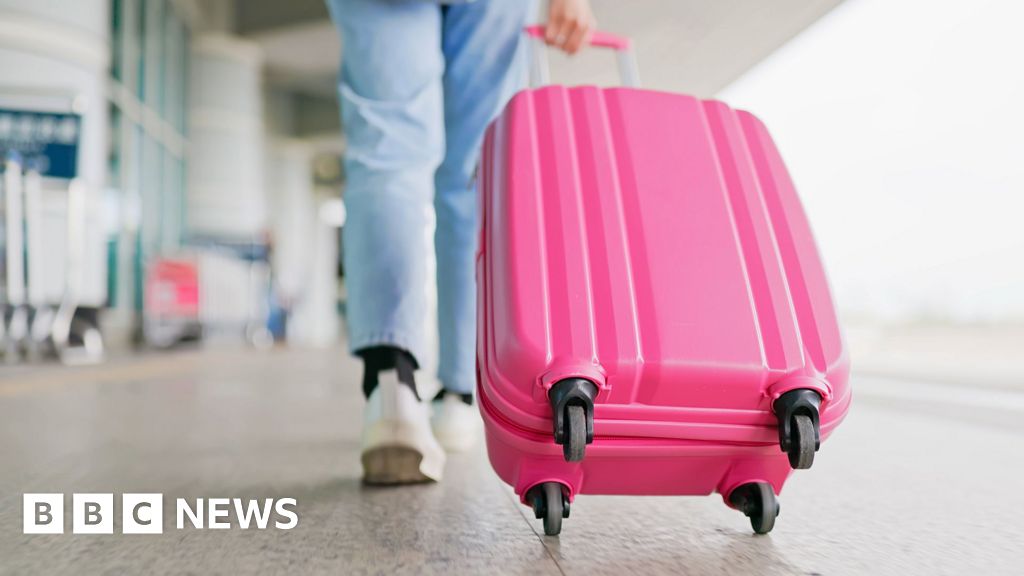ARTICLE AD BOX
By Michael Race
Business reporter, BBC News
Image source, Getty Images
Fuel sales have fallen as drivers cut back on the amount of journeys they make due to higher pump prices, a petrol station operator has said.
Ascona Group, which owns 60 UK petrol stations, said the amount of fuel it sold compared to pre-pandemic levels had dropped by 200,000 litres a week.
Managing director Darren Briggs said customers were making £20 to £30 fuel purchases "last a little bit longer".
Prices have reached record highs recently due to high oil prices.
The price of Brent crude oil - the global benchmark for prices - has soared in recent months after Russia's invasion of Ukraine raised concerns of potential global supply issues.
Ahead of the invasion, fuel prices had already been rising after demand rose following the reopening of economies from coronavirus lockdowns.
The Office for National Statistics revealed on Thursday that the UK's economy shrank by 0.1% in March and said higher prices, including those at the petrol pumps, were "really beginning to bite".
Ascona Group's Mr Briggs, which employs about 800 staff, told the BBC's Today programme that fuel sales volumes were down by between 6-8% in the past six weeks.
"Pre-Covid we would retail around about 2.8 million litres a week, we're down to about 2.6 (million)," he said.
"We are seeing our customers making that £20-£30 purchase of fuel last a little bit longer."
Image source, Getty Images
According to the RAC, every mile driven now costs 18.5p for petrol and 20p for diesel.
Unleaded petrol is currently at £1.65 a litre on average, up 2.75p since 1 May, while diesel is at £1.79, a fraction off the previous record high set on 23 March.
Rod Dennis, of the RAC, said the "cost of living crisis is undoubtedly having a very real effect" on drivers using their cars.
He said the fall in sales chimed with recent research conducted by the motoring group which showed 30% of drivers were driving less often and 21% said they were "deliberately" driving more efficiently to save fuel.
"Unfortunately, as a result of yet more increases in the wholesale cost of fuel in recent days we're likely to see pump prices rise even further in the coming weeks, increasing the squeeze on households," he added.
In response to higher fuel prices, earlier this year the government cut fuel duty on petrol and diesel by 5p per litre. It has said the reduction, which will last for a year, will help drivers cope with rising fuel costs.
But Darren Morgan, director of economic statistics at the ONS, said that people had already started spending less in shops and were cutting down on car journeys due to the high cost of fuel at the pumps in March.
The downturn in March came ahead of the impact of higher energy bills in April, which has sparked fears from analysts that the UK economy is at risk of a recession - defined as the economy getting smaller for two consecutive three-month periods - later this year.
Last week, the Bank of England forecast that inflation - the rate at which prices rise - could reach more than 10% by the end of the year.
Dame DeAnne Julius, a former member of the Bank's monetary policy committee, which sets interest rates, said the UK economy would be "close if it actually doesn't actually go into recession".
"My hunch is that the Bank of England's forecast is a little bit on the gloomy side, but time will tell," she said.
Dame DeAnne said the main reason inflation was rising was because of "global issues" such as the Ukraine war, with Ukraine being a large exporter of food and Russia a large exporter of energy.
She said the Bank had "no alternative" but to raise interest rates.
"Recession sounds a very scary word but actually what we are talking about is a sort of flat lining for a period as consumers re-adjust. As they re-adjust to [buying] cheaper food or to saving energy more carefully," she added.
"The economy fundamentally is pretty solid, the banks are in good shape. We are not about to go into something like the 2008 financial crisis."

 3 years ago
42
3 years ago
42








 English (US) ·
English (US) ·